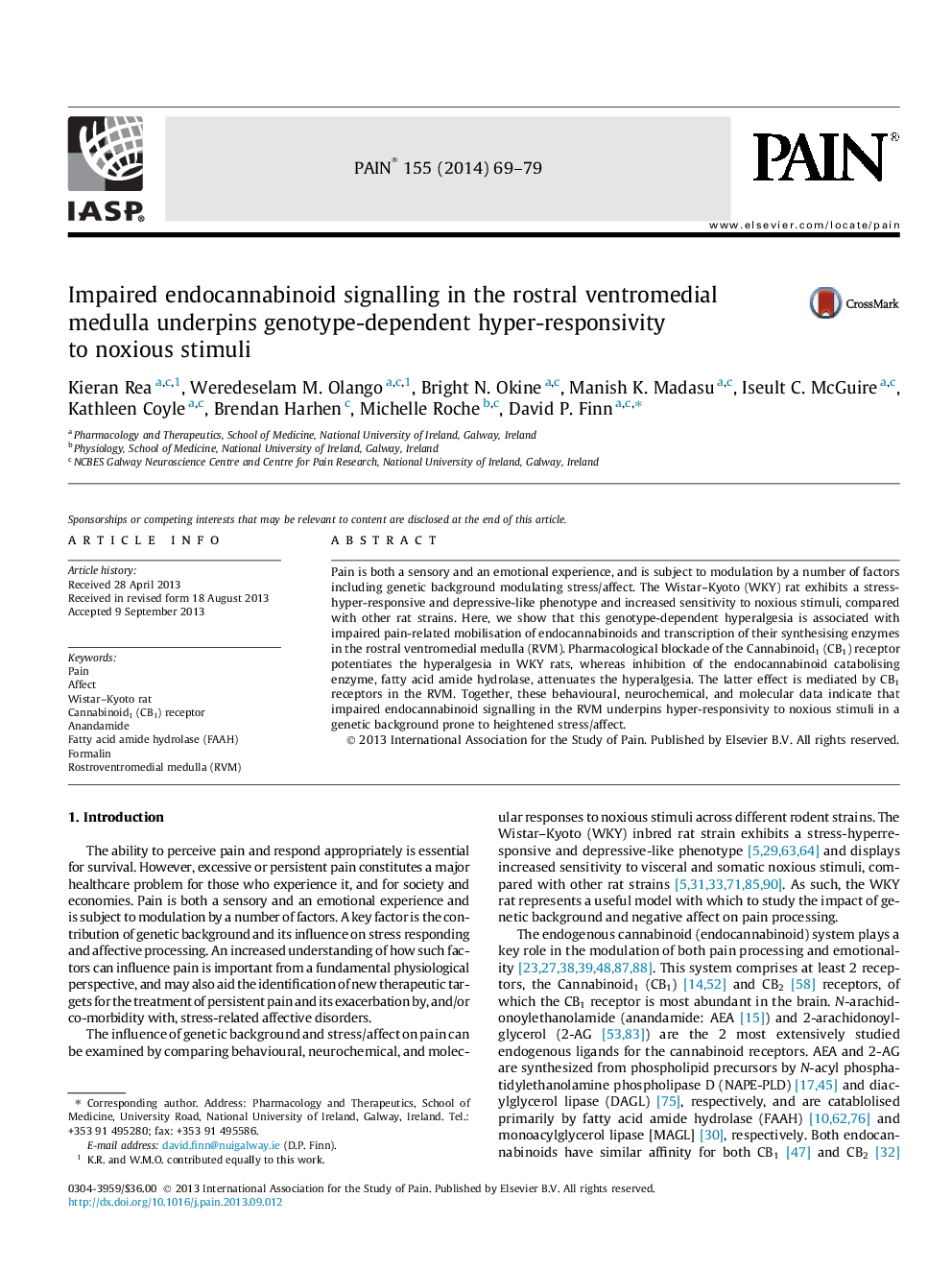| کد مقاله | کد نشریه | سال انتشار | مقاله انگلیسی | نسخه تمام متن |
|---|---|---|---|---|
| 10450196 | 918348 | 2014 | 11 صفحه PDF | دانلود رایگان |
عنوان انگلیسی مقاله ISI
Impaired endocannabinoid signalling in the rostral ventromedial medulla underpins genotype-dependent hyper-responsivity to noxious stimuli
ترجمه فارسی عنوان
سیگنالینگ آندوکانبینیدها در مدولا روانسل ونتومدیال ناشی از واکنش پذیری ژنوتیپ وابسته به محرک های زهرایانه است
دانلود مقاله + سفارش ترجمه
دانلود مقاله ISI انگلیسی
رایگان برای ایرانیان
کلمات کلیدی
موضوعات مرتبط
علوم زیستی و بیوفناوری
علم عصب شناسی
علوم اعصاب سلولی و مولکولی
چکیده انگلیسی
Pain is both a sensory and an emotional experience, and is subject to modulation by a number of factors including genetic background modulating stress/affect. The Wistar-Kyoto (WKY) rat exhibits a stress-hyper-responsive and depressive-like phenotype and increased sensitivity to noxious stimuli, compared with other rat strains. Here, we show that this genotype-dependent hyperalgesia is associated with impaired pain-related mobilisation of endocannabinoids and transcription of their synthesising enzymes in the rostral ventromedial medulla (RVM). Pharmacological blockade of the Cannabinoid1 (CB1) receptor potentiates the hyperalgesia in WKY rats, whereas inhibition of the endocannabinoid catabolising enzyme, fatty acid amide hydrolase, attenuates the hyperalgesia. The latter effect is mediated by CB1 receptors in the RVM. Together, these behavioural, neurochemical, and molecular data indicate that impaired endocannabinoid signalling in the RVM underpins hyper-responsivity to noxious stimuli in a genetic background prone to heightened stress/affect.
ناشر
Database: Elsevier - ScienceDirect (ساینس دایرکت)
Journal: PAIN® - Volume 155, Issue 1, January 2014, Pages 69-79
Journal: PAIN® - Volume 155, Issue 1, January 2014, Pages 69-79
نویسندگان
Kieran Rea, Weredeselam M. Olango, Bright N. Okine, Manish K. Madasu, Iseult C. McGuire, Kathleen Coyle, Brendan Harhen, Michelle Roche, David P. Finn,
